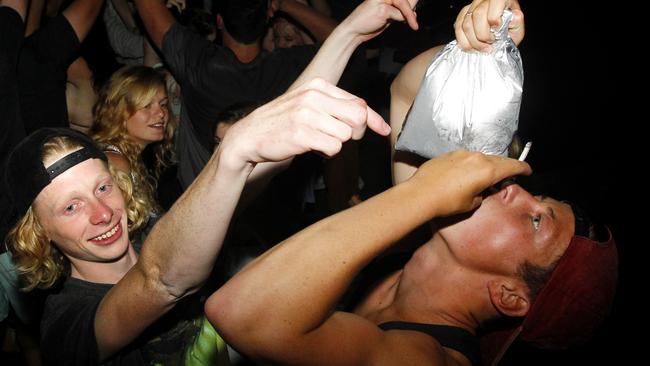Government considers ‘goon tax’ proposal
THE price of the humble goon sack could shoot through the roof under a government push to overhaul Australia’s alcohol tax system.

THE price of the humble goon sack could shoot through the roof under a government push to overhaul Australia’s overly complicated alcohol taxation system.
Health groups have welcomed the recommendation by the Senate’s red tape committee to introduce a single volumetric tax rate across all alcohol products, in a move that would push up the price of cheap wine while making premium wine and spirits cheaper.
The committee’s interim report, released on Wednesday, says the change should be “phased in to allow reasonable adjustment”.
Other recommendations by the committee, chaired by Liberal Democrats Senator David Leyonhjelm, would broadly support the sale and supply of alcohol.
They include allowing packaged alcohol to be sold in supermarkets, petrol stations and convenience stores, streamlining liquor licensing, and abolishing restrictions on trading hours for liquor stores.
“The committee ... has identified numerous issues with the excessive level of regulation on Australian alcohol,” Coalition Senators Dean Smith and James Paterson wrote in the report.
“The effect of differential treatments in alcohol taxation, compounded with each state and territory having their own legislation, associated regulations, and licensing regimes for the sale and supply of alcohol, show the complexities of the current system.”
Currently, alcohol products are taxed under two different systems — wine is taxed by value, whereas other products are taxed by alcohol content — resulting in 16 effective tax rates and various concessions.
The Wine Equalisation Tax amounts to 29 per cent of the wholesale price of wine, meaning the cheaper the wine, the less it is taxed.
According to the Australian Taxation Office, alcohol excise and excise equivalent customs duty generated $5.4 billion in revenue in 2015-16, while the WET generated $883 million for the same financial year, totalling $6.2 billion.
The 2009 Henry Tax Review described the system as “incoherent” and also recommended moving to a single tax based on alcohol volume.
The wine industry, which makes up about 40 per cent of the market but pays around 13 per cent of the tax, has previously argued against reform. Beer and spirits makers have pushed for the change.
The Winemakers’ Federation of Australia was not immediately available for comment. In 2015, then chief executive Paul Evans told news.com.au the body “strongly opposes any proposal to increase wine taxation”.

Global drinks giant Diageo, which owns the likes of Smirnoff, Johnnie Walker and Guinness, welcomed the recommendation.
“Diageo has long argued for tax equivalence — that is that all alcoholic products be taxed on the amount of alcohol they contain regardless of whether they are made from grape, grain or distilled,” Diageo spokesman Jules Norton Selzer said.
“Just because you prefer a gin and tonic over a schooner of beer or glass of red, doesn’t mean you should be penalised financially for it. Ultimately alcohol is alcohol and all alcoholic products should be taxed at the same rate.”
Michael Thorn, chief executive of the Foundation for Alcohol Research and Education (FARE), said the group “strongly supports a volumetric tax on all types of alcohol, be they wine, beer or spirits”.
“We know that cheap booze is the preferred drink of habitual drinkers and young people, because price is so determinative for them,” Mr Thorn said. “One of the consequences of the [value-based] system is the economic distortions is causes, because it incentivises the production of cheap bulk wine.”
A spokeswoman for Revenue and Financial Services Minister Kelly O’Dwyer said the government would consider the recommendations. “The Turnbull Government has a strong record on reform of the alcoholic beverages industry,” she said.
Ms O’Dwyer pointed to the government’s crackdown on widespread rorting of rebates available to producers under the WET regime.
She said the government had already “put the wine industry on a stronger footing” by making sure the WET rebate “goes to wine producers with proven, real investment in the industry, regional areas and brands”, and by “improving the integrity of measures by better linking rebate claims to the WET being paid”.
“From 1 July 2017 we are extending the brewery refund scheme to alcohol producers who undertake distillation or fermentation,” she said. “This will help domestic producers of whisky, vodka, gin and liqueurs as well as producers of low strength beverages such as non-traditional cider.”




